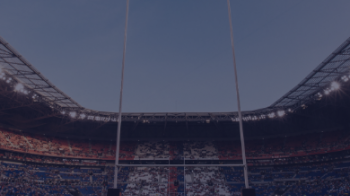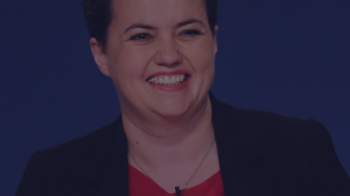Bruce Daisley: Creating a sense of ‘togetherness’ is critical
Posted on Thursday 28 October 2021 | IAB UK
Speaking as part of our 2021 Leadership Series, best-selling author and ex-VP of Twitter Bruce Daisley addressed seismic shifts in working culture and the future of ‘WFH’
From his book ‘The Joy of Work’ to podcast ‘Eat Sleep Work Repeat’, Bruce Daisley, author and ex-VP of Twitter, is very well placed to discuss the workplace changes we’ve witnessed in the past year. He joined us at Leadership Series to share, as our CMO James Chandler put it, “first-hand insights that he’s garnered, not just from our world, but different types of industries”. Here’s what we took away from the session.
A good culture gives you fortitude
There’s been much discussion about workplace culture since the start of the pandemic - can it translate to a WFH context? Does it matter? And what does it look like in the future? According to Daisley, “what you get from a good culture is that it gives you a degree of fortitude to get over short-term problems and to maintain morale within the team”. Throughout his career - starting at Capital Radio, via Google, to Twitter - Daisley has been fixated on what it takes to build a good workplace culture and “how that might be a superpower”. According to him: “The challenge of the last 18 months is that some of the tools that we’ve used to create culture and motivation in the past have been removed.” The ‘work hard, play hard’ trope that has dominated in the past no longer stacks up when the ‘play’ element isn’t possible, so “the interesting challenge is what comes next”.
The objectives of the office
To understand what the future of workplace culture looks like, we have to assess what the office means to us. This is in light of the fact that Leesman’s Workplace Survey scores average worker satisfaction while working from home at 82 points, vs 78 points for the very best offices. In short, employers need to assert the ‘why’ of the workplace if they want to attract employees back. Daisley took us through the objectives of the office, including:
- To have meetings by appointment. There are still some meetings that we value doing face to face. These tend to be ‘divergent’ meetings, where people share a range of opinions and “hammer out which is best”, vs ‘convergent’ meetings which are more of a singular update and can easily be done virtually. “Let’s try and be a bit more attentional on what meetings we’re doing where”, Daisley explained.
- To meet people by accident. “If we allow people to be fully autonomous then that network effect is lost” and those that are coming into the office will start to question why they are.
- As a workshop to do our best work and also to showcase that to clients and industry peers.
- As a place of team cohesion where you can create a sense of togetherness beyond just as a group of colleagues.
- As a place of learning, particularly for younger employees that can learn from simply witnessing office dynamics and being immersed in a workplace culture.
Changes aren’t cyclical, they’re structural
It’s imperative that employers realise that we aren’t going to return to how things were before the pandemic, according to Daisley. “The change that we’re witnessing isn’t cyclical, it’s structural”, he explained, and it’s those that find the right balance between office life and working from home that will build strong teams. He predicts that the sweet spot will be coming into the office one or two days a week. However, there are complex issues to navigate, such as how you offer flexibility while also ensuring that those that are present in the office don’t monopolise opportunities. This would result in a “bifurcated culture” with toxic implications for inclusion and diversity - with those who are parents, carers or less able to come into the office potentially being left behind.
Whatever ratio of IRL:WFH employers ultimately decide on, creating a sense of “togetherness” is crucial. “People who are religious live longer and have better health outcomes”, Daisley explained. Why? “Because when people feel part of something, it seems to have an impact on their health…
The more that we can recognise the value of having people feel part of a congregation is really critical.”
Related content
Martin Siegert on climate change: “Advertising is really critical for our future”
Learn moreNigel Owens: The biggest challenge of my life was accepting myself
Learn moreRuth Davidson: “The most important resource in any organisation is people”
Learn moreLeadership Series: Listening is the key to greater connection
Learn more
Rediscover the joy of digital advertising
Champion connections instead of clicks. Capture audiences' imaginations, not just their attention. Boldly find your own beat instead of letting tech set the pace. It’s time to rediscover the joy of digital.



